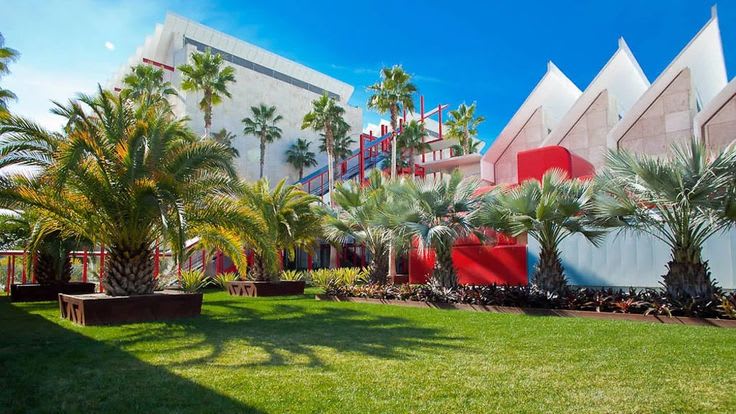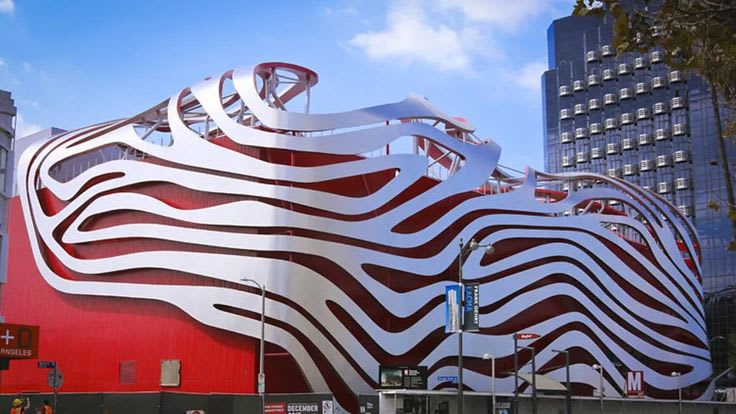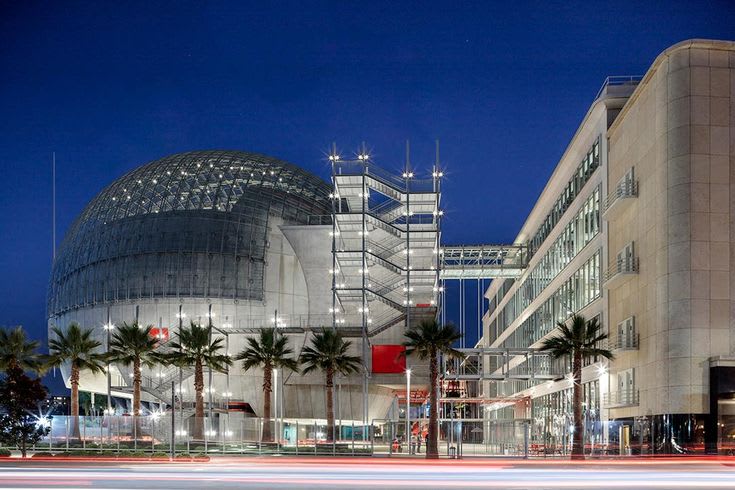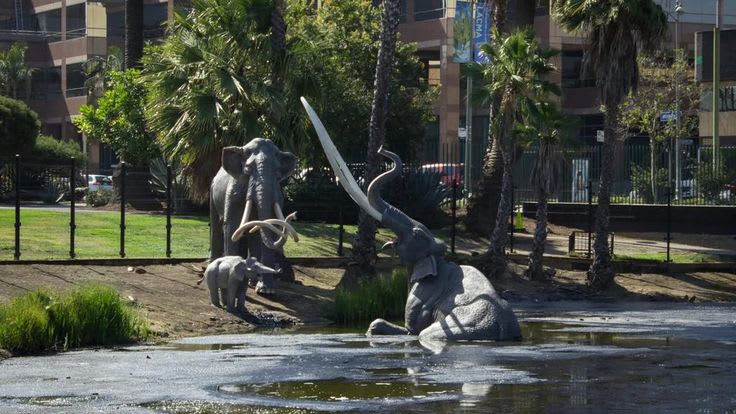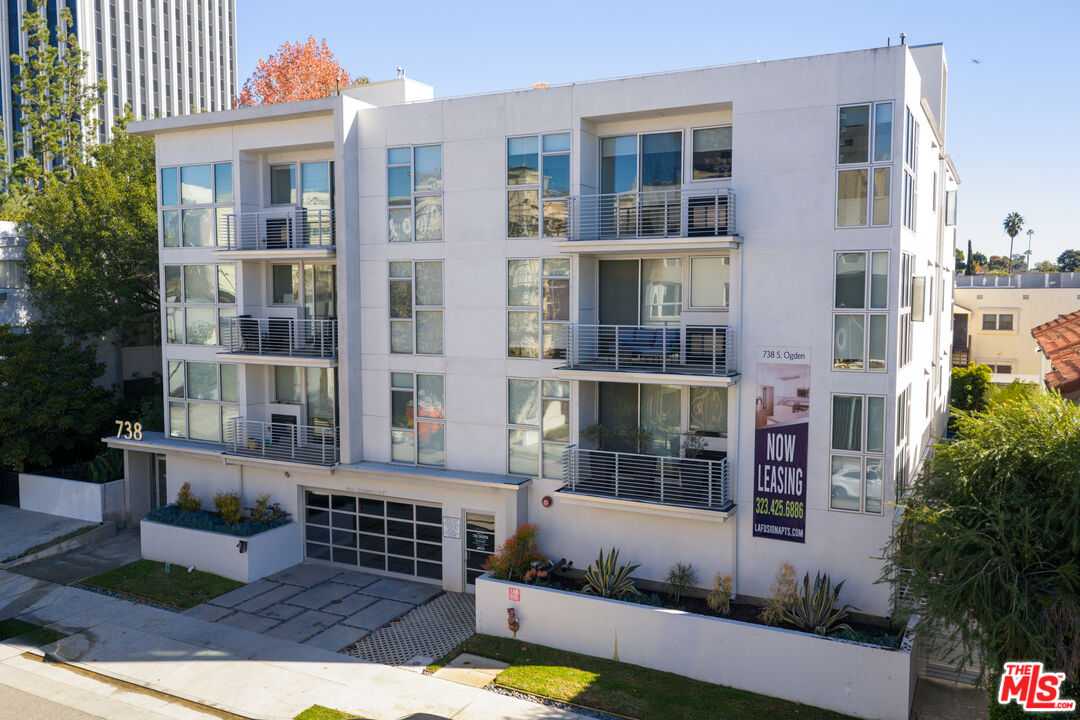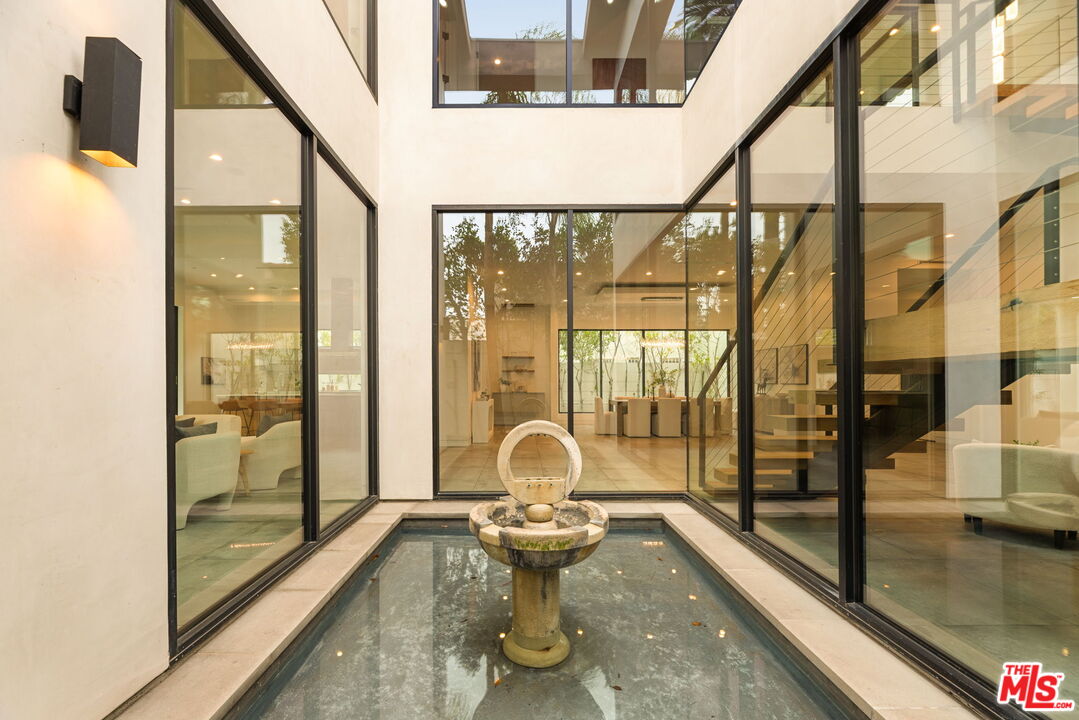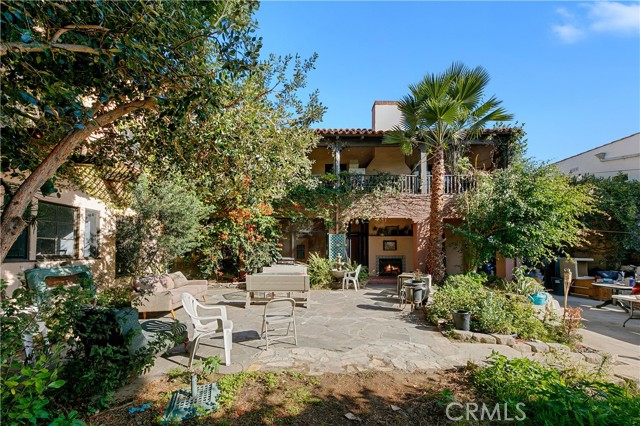A guide to Miracle Mile
Art, fashion and food combine to create a buzzing atmosphere in Miracle Mile. Discover the best of what this affluent LA district has to offer at its bars, museums and outlet stores. Miracle Mile is centered on Wilshire Boulevard, which was once a prehistoric migration route and a path trodden by Spanish rancheros. It became a retail and tourist district after a realtor purchased land in 1921 with a plan to decentralize the city’s commercial activity.
Start your day by delving into prehistoric, art and automobile history at the museums of Museum Row. Los Angeles County Museum of Art has everything from antique glasswork and Greek ceramics to contemporary Latin American and Spanish colonial paintings. Outside, the Urban Light is a fascinating installation of 202 restored and solar-powered street lamps. See original sections of the Berlin Wall at the Wall Project.
La Brea Tar Pits is a collection of tar pits and a museum home to one of the world’s richest sources of Ice Age fossils. See fossilized mammoths, sloths and saber-toothed tigers in addition to stage and multimedia shows. Hancock Park La Brea surrounds the museum with bubbling asphalt pits, lush lawns and models of Ice Age mammals.
Food trucks and gastropubs line Wilshire Boulevard and satisfy cravings with international cuisine. Sample authentic Baja-style tacos, Cuban rolls and Vietnamese banh mi sandwiches. Attend concerts at the art deco El Rey Theater. In neighboring La Brea, The Grove shopping village has high-end and chain retailers.
Miracle Mile sits 3 miles (5 kilometers) south from West Hollywood. Public buses run along Wilshire Boulevard and other major thoroughfares that cut through the neighborhood. To the north is the vibrant Fairfax District and to the west are the coffeehouses, thrift stores and restaurants of Little Ethiopia.
Los Angeles County Museum of Art (LACMA)
LACMA's collections and particularly its exhibitions and programming have long been the most impressive in the city. From Chris Burden's iconic entrance installation Urban Light, a piece made up of 202 cast-iron street lamps gathered from around LA, to blockbuster exhibitions like James Turrell and Rain Room, LACMA's artwork is essential. Its collections span hundreds of years and thousands of miles, from the Pavilion for Japanese Art to the Broad Contemporary Art Museum.
Petersen Automotive Museum
Miracle Mile was the first commercial area in Los Angeles designed specifically with drivers in mind, making it fitting that a former department store now houses this museum dedicated to car culture. A 2015 redesign transformed the automotive history museum into a cutting-edge gallery showcasing around 150 vehicles. While the museum offers a glimpse into the rise of car culture in Southern California, the primary focus is on the evolution, dominance, and stunning design of automobiles. Here, you'll discover a blend of iconic Hollywood cars, elegantly curvaceous vintage models, and high-performance supercars.
Academy Museum
The Academy Museum of Motion Pictures is the largest museum in the United States dedicated to the art, science, and creators of filmmaking. With a global perspective and rooted in the unrivaled collections and expertise of the Academy of Motion Picture Arts and Sciences, the museum presents outstanding exhibitions and programs that bring the world of cinema to life. These experiences are immersive and dynamic, showcasing the many facets of movies—their artistry, technology, creators, history, and social impact—through a variety of diverse and engaging voices. The Academy Museum tells comprehensive stories of filmmaking, offering celebratory, educational, and sometimes critical or challenging perspectives.
La Brea Tar Pits
The La Brea tar pits formed more than 40,000 years ago, when viscous black liquid began to rise through cracks in the coastal plan. Wood and bones extracted from the asphalt have been dated to 38,000 years ago. Those bones have been identifies as having belonged to American lions, bison, dire wolves, ground sloths, horses, mammoths, saber-tooth cats, turtles, and other animal species, many of which went extinct long ago. The oldest human remains pulled from the pits were those of a young Chumash woman, whose partial skeleton was discovered in 1914, and whose age was estimated at between 18 and 25 years. They were dated to 10,220–10,250 years BP — about 8200 BCE — around the time the mainland Chumash population reached its peak — and before a mega-drought preceded their concentrating their populations along the coast and offshore islands.
Back in 1875, a group of amateur paleontologists discovered animal remains in the pits at Rancho La Brea, which bubbled with asphalt from a petroleum lake under what is now Hancock Park. Some 140 years later, the pros are still at work here, having dragged more than 3.5 million fossils from the mire in the intervening years. Many of these specimens are now on display in this delightfully old-fashioned museum. Outside, the pits still bubble with black goo—in summer, you can watch paleontologists at work in the excavation of Pit 91 and inhale the nasty tang of tar in the air.
